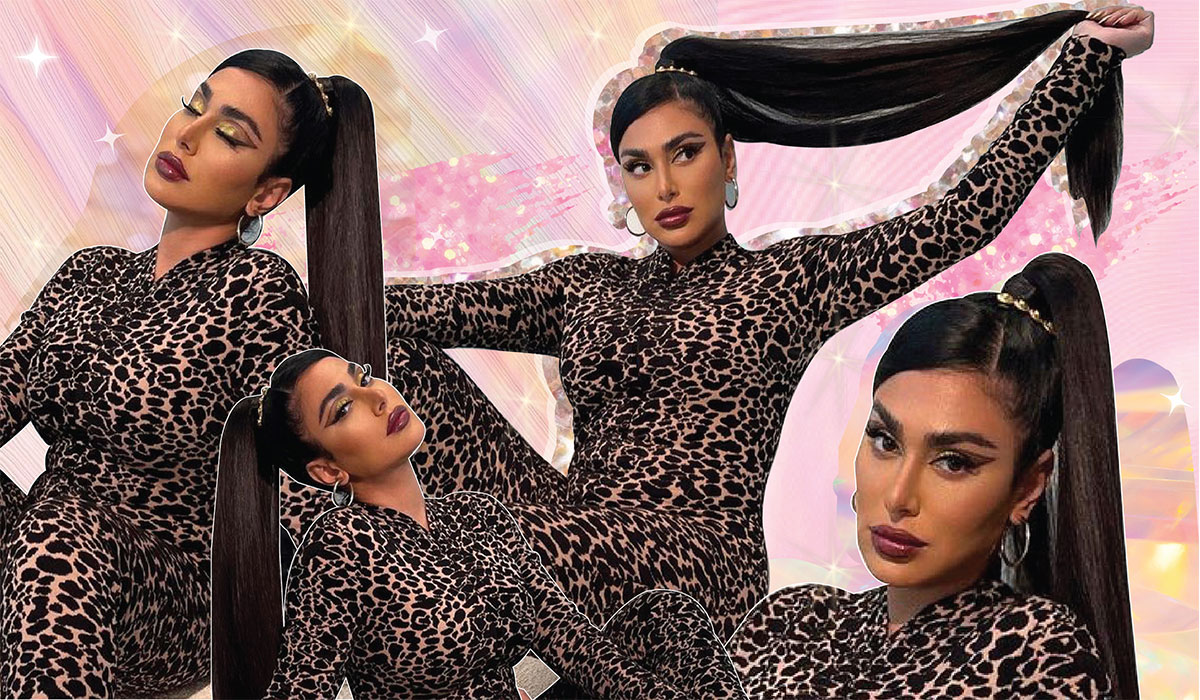Don't Be Tricked – Our Guide To Buying Organic Beauty
 via Giphy
via Giphy
In the past couple of years, wellness and mindfulness have become huge trends, leaving many of us to try living more natural and healthy lifestyles. And the hype hasn’t just been limited to what we eat or the way we work out; it’s everything that we put on and in our bodies, including our cosmetics. With celebs like Gwyneth Paltrow and Jessica Alba telling us that a natural, organic lifestyle is the key to feeling and obviously looking AHmazing too, who wouldn’t want to try it out?
Why organic beauty is amazing
It could actually be the skincare cure you’ve been looking for. If you have more sensitive or acne-prone skin, having faith in your product’s ingredients and knowing their individual impact on your skin is so important. But when it comes to organic beauty, you really need to be careful with what you’re buying, as it may not be as organic as it claims to be on the bottle or in the ad campaign. So instead of investing in a product that you think is free from synthetic and artificial ingredients, it could actually still contain them. To help, we’ve decoded all the BS so you can have 100% faith in your organic beauty products.
What is organic beauty?
For those of you who aren’t really sure what organic beauty really is, it’s basically any product that doesn’t contain any chemicals, parabens, phthalates or genetically modified ingredients. Typically, if you have sensitive or irritable skin, these ingredients could cause a bad reaction and breakouts, so organic beauty could be a great solution for you. It also means it’s free from animal testing, colors, dyes, and is 100% fragrance-free. The ingredients also have to be sustainably sourced and normally come in biodegradable, reusable packaging.
Know the difference between ‘organic’, ‘made with organic’ and ‘natural’
For most products to call themselves ‘organic’, 95% of their ingredients must be organic, according to leading cosmetic certifiers, COSMOS. However, for products to claim they’re ‘made with organic’, only 20% of the ingredients need to be organic, or just 10% if you eventually rinse the product off (like a cleanser), which is worryingly misleading! Also, beware if you see the word ‘natural’, it doesn’t really mean its 100% natural and it’s definitely not organic. This is because the majority of natural ingredients are altered and refined (bleached, deodorized and heated to high temperatures), all of which strip them of their natural goodness.
Study the ingredient list
When looking at a product list, remember that the ingredients are listed from highest in content to the lowest, so if there are any synthetic ingredients like Propylene Glycol or dimethicone, make sure they’re listed last. But don’t always assume the worst, as some natural ingredients have a more scientific name, for example, sodium chloride is actually just sea salt or citric acid is really just the acid that’s found in citrus fruits. If there’s an ingredient on the list that you don’t know, google it!
Look out for the seal
The seal of approval from a cosmetic or organic certifier is crucial when you want to be 100% confident in your organic beauty products. The biggest, most reputable associations are Soil Association, COSMOS, QAI, ECOCERT, NSF, or USDA organic seal. Products with these seals will also have to list if they contain any non-organic ingredients. If it has been confirmed by these organizations, then you can be confident in your product, if it’s not, do some research in the company’s ethics and look into the production methods.

Know your brands
When it comes to organic beauty, it’s a good idea to stay loyal to a brand for your own piece of mind. The largest SOIL-certified brand is Neals Yard Remedies, but others also include, Pai, Bamford, and Nourish. Again, with any newer brand, we would recommend that you do your research to check whether it has been approved by a large, reputable certifier. Also be wary if a larger co-operation uses the words “organic” or “natural”, they would undoubtedly be certified if they are staying true to their word. With smaller independent companies, we would recommend again checking out the ingredient list or even talking to the brand as they’ll have all the information you need. Just make sure you go through our checklist, listed above.
Our favorites
If you want to try out Organic beauty but are new to the idea, check out some of our faves: Neals Yard Remedies (the largest SOIL certified Organic beauty company), Pai, Bamford, Nourish, 100% Pure, Coola Suncare, Vapour, African Botanics, Alima Pure, RMS Beauty, and Afterglow Cosmetics. Another great site to use is Credo, which is an e-commerce site that is solely dedicated to natural, organic beauty. But we would still advise researching their brands as some are more organic than others.
It’s definitely worth doing your homework if you want to start investing in organic beauty so you can really have faith in what you’re buying. It may seem like a lot of effort, but honestly, it could be your key to perfect skin.























Leave a comment